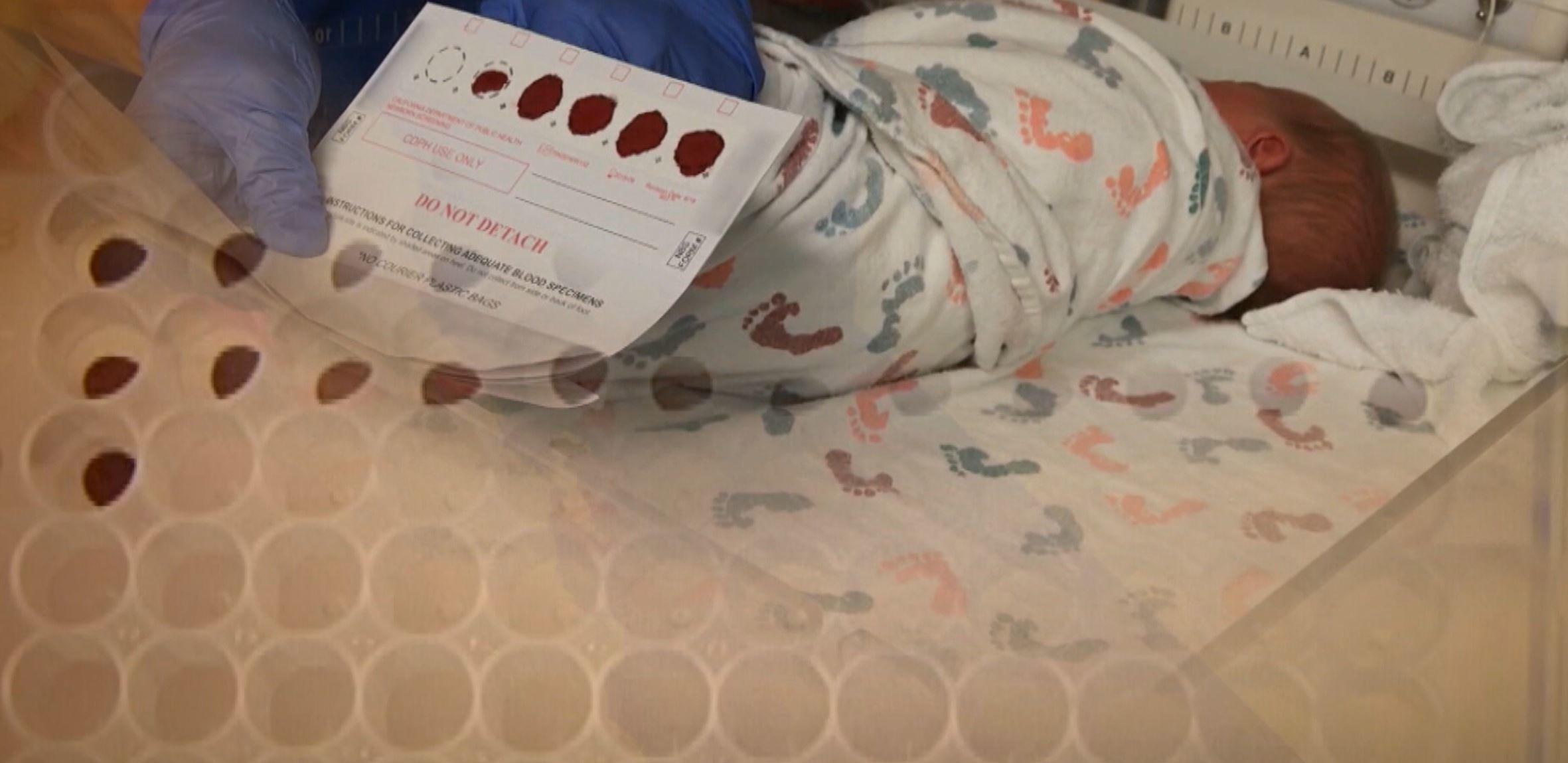On The Money: Pension Reform Fight
By Mike Luery
SACRAMENTO (CBS13) -- Pensions for public workers are making big news today, especially at CalSTRS, where the giant retirement fund for teachers is now $56 billion short. The California State Teachers' Retirement System now admits it has a $56 funding gap, an increase of nearly $16 billion since this February announcement.
CalSTRS suffered big investment losses during the meltdown on Wall Street – about $43 billion from June 2008 to June 2009. Compounding the problem, a new wave of baby boomers getting ready to retire – combined with the fact those retirees are living longer and collect a pension check until the day they die.
Another factor at play is the growing $100,000 pension club.
As On The Money has reported previously, the number of people collecting six-figure pensions has jumped 70% in the last year and a half – and now more than 5,200 retired teachers and administrators are on the list. That's about 2% of the total, but those numbers are getting bigger every month. The median pension for teachers is about $49,000 a year – and they do not collect Social Security.
But if the CalSTRS fund is unable to make payments, then ultimately taxpayers are on the hook.
"I'm really mad," stated Marcia Fritz, president of the California Foundation for Fiscal Responsibility.
Fritz, a self-proclaimed Democrat, told CBS 13," What we have is a state of denial. And the unions are not giving it straight to their members and their members need to know that unless we take action today, it's going to get worse and worse and worse."
Unions blame the problem on Wall Street.
"Unfortunately, the Wall Street crash on top of the dot-com bust is creating a short-term assessment of the teachers' retirement system that fails to reflect its long term health," said David A. Sanchez, president of the California Teachers Association.
In a statement, Sanchez added, "Teachers and other public employees have and will continue to contribute their fair share toward their pensions to right the ship while it continues to make double-digit gains to recover from the financial crisis -- a crisis caused by the same investment firms that would profit handsomely if the proposals being pushed by politically-motivated pension busters would be enacted."
CalSTRS has already reported the fund will run out of money in 2042 unless changes are made. Ultimately, taxpayers would have to make up the difference.
Today, Governor Jerry Brown announced a pension reform plan that addresses the unfunded obligations at CalSTRS and other state retirement funds.
Brown's 12-point plan calls for the following reforms:
1. Eliminate Purchase of Airtime. Would eliminate the opportunity, for all current and future employee members of all state and local retirement systems, to purchase additional retirement service credit. (RN 14777) (Note Walters, SB 522, would eliminate Air Time)
2. Prohibit Pension Holidays. All California public agencies would be prohibited from suspending employer and/or employee contributions necessary to fund the normal cost of pension benefits. (RN 14777)
3. Prohibit Employers from Making Employee Pension Contributions. All California public agencies would be prohibited from making employee contributions that fund the normal cost of employee retirement benefits in whole or in part. (RN 14777)
4. Prohibit Retroactive Pension Increases. All California public agencies would be prohibited from granting any retroactive pension benefit increases, such as benefit formula improvements that credit prior service. (RN 14777)
5. Prohibit Pension Spiking: Three Year Final Compensation. Final compensation for new employees would be defined as the highest average annual compensation during a consecutive 36 month period. (RN 14777)
6. Prohibit Pension Spiking: Define Compensation as Only Regular, Non-recurring Pay. Compensation means normal rate of pay or base pay. (RN 14777) (Note Simitian, SB 27, would exclude from defined benefit changes in compensation principally for the purpose of enhancing benefits; would place stricter limits on creditable compensation)
7. Felony Convictions. Prohibits payment of pension benefits to those who commits a felony related to their employment. (RN 14777) (*Note Strickland, SB 115, similar prohibition)
PROPOSALS UNDER DEVELOPMENT
*Impose Pension Benefit Cap.
*Improve Retirement Board Governance
*Limit Post-Retirement Public Employment
*Hybrid Option
*Address CalSTRS Unfunded Liability
Senate Republican leader Bob Dutton, released this assessment of the governor's pension reform plan:
Where we agree:
- Eliminate the purchase of Airtime. Would eliminate the opportunity, for all current and future employee members of all state and local retirement systems, to purchase additional retirement service credit.
- Prohibit pension holidays. All California public agencies would be prohibited from suspending employer and/or employee contributions necessary to fund the normal cost of pension benefits.
- Prohibit employers from making employee pension contributions. All California public agencies would be prohibited from making employee contributions that fund the normal cost of employee retirement benefits in whole or in part.
- Prohibit retroactive pension increases. All California public agencies would be prohibited from granting any retroactive pension benefit increases, such as benefit formula improvements that credit prior service.
- Prohibit pension spiking: three year final compensation. Final compensation for new employees would be defined as the highest average annual compensation during a consecutive 36-month period. (Senate Republicans would prefer five years).
- Prohibit pension spiking: define compensation as only regularly, non-recurring pay. Compensation means normal rate of pay or base pay.
- Felony convictions. Prohibits payment of pension benefits to those who commits a felony related to their employment.
We also agree in concept with the governor's efforts to do the following:
- Impose pension benefit cap
- Improve retirement board governance
- Limit post-retirement public employment
Major areas where we disagree:
- Let the people vote on permanent public employee pension reform. Governor Brown is proposing laws that can be repealed tomorrow by a majority vote of the Legislature. His proposal provides no protection against future pension giveaways.
Senate Republicans want lasting pension reform placed on the ballot and protected by a vote of the people. Why won't Governor Brown let the people vote on permanent pension reform?
- Voluntary hybrid pension system does nothing to address the state's long-term financial risk. Governor Brown's proposal assumes public employees will volunteer for lower benefits, which ignores reality.
Senate Republicans believe only a mandatory hybrid pension system modeled after Little Hoover Commission and Legislative Analyst's Office recommendations can reduce the financial risk effectively.
- Unsustainable pensions costs. Governor Brown's proposal does nothing to address the $60 billion unfunded state health benefit liability the State Controller's Office recently identified or the $70-plus billion of unfunded state pension liability. One analysis suggested that the statewide unfunded liability for pension benefits could be as much as $500 billion.
Senate Republicans believe state employees should pay their fair share of these unfunded liabilities to reduce future costs so our children and grandchildren don't pay for overpromising today, and that the ability of state local governments to deliver quality services is not impaired.
- No ability to change benefits in the future. Governor Brown's proposal provides no ability to change pension benefits in the future if they are still unaffordable.
Again, consistent with the independent Little Hoover Commission recommendations, Senate Republicans are proposing greater protection for California families against runaway pension costs by allowing the flexibility to change future pension contracts for new state employees.
- No protection from future pension giveaways. Governor Brown's proposal allows salary and pension increases to public employee unions with a simple majority vote of the Legislature.
Senate Republicans believe taxpayers should be protected by a 2/3rd super majority vote of the Legislature to change the salary and benefits of public employees. It's the only way to ensure that public employee salaries and benefits are appropriate and sustainable.
In a statement Dutton said, "While Senate Republicans applaud the governor's "developing" proposal to address the CalSTRS Unfunded Liability, when Senate Republicans proposed to set actuarially-sound rates for CalSTRS funded within the Prop. 98 guarantee, the governor did not seem interested in pursuing a solution to the CalSTRS issue. It is interesting that after today's media stories outlining a $56 billion unfunded CalSTRS pension liability, the governor announces a "developing" proposal. Nonetheless, we are glad the governor is still considering Senate Republican recommendations even after unilaterally ending budget discussions."
And so the fight over pensions in California is only heating up.



